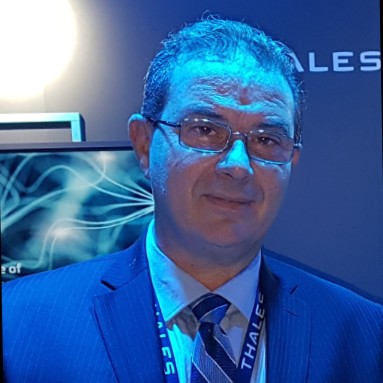Keynote Speakers

Antonia Bertolino
Title: Software Regression Testing Orchestration: Because so Many Techniques Need a Conductor (and not Necessarily a Human One)
Abstract: Software regression testing aims at ensuring that introduced changes do not cause previously passing tests to fail. Testing consumes a great part of software development and maintenance effort, and regression testing is by far the most expensive among testing activities. Along three decades, research has proposed many techniques that address the cost-effective software regression testing along different dimensions, including, among others, prioritization, minimization, selection, and amplification techniques. Notwithstanding, the problem remains prominent, even more by considering continuous integration practices that promote frequent change commits and retesting. In our work we point to two issues in current research on software regression testing: it is fragmented, in that the large part of proposed approaches only address one problem dimension at a time, and it often relies on unrealistic assumptions that make most proposed solutions hardly applicable. We addressed the latter issue in a recent systematic review of literature, complemented with a survey of professional testers. As a result of such an effort, we share a live open repository of current techniques and tools. To address the former issue, we introduced the notion of regression test orchestration, which consists of combining different techniques into one synergic strategy. Some initial studies (unsurprisingly) confirm that approaching regression testing by using properly combined techniques can often provide more efficient and effective solutions. Indeed, to identify the most effective orchestration strategies we need to perform empirical studies that compare and combine the many existing techniques. We invite the community to the conduction of more similar studies. For the future in this keynote we also hint at a regression test orchestration framework that ideally can autonomously manage itself by continuously monitoring the testing process and by proposing an optimized test campaign via the embedding of suitable heuristics and learning approaches. Such an autonomic test orchestrator would alleviate testers from the effort-demanding regression testing practices, allowing them to better spend their energy into other tasks requiring human attention.
Bio: Antonia Bertolino is a Research Director at ISTI-CNR in Pisa, Italy. Her research interests cover software and services validation, testing, and monitoring, and on these topics she has published more than 200 papers in international journals, conferences and workshops. She has led, or participated in, several collaborative projects, including more recently the H2020 European Project ElasTest, the National project GAUSS (Governing Adaptive and Unplanned Systems of Systems), and the FP7 CP Learn PAd (Model-Based Social Learning for Public Administrations). Currently she serves as a Senior Associate Editor for the Elsevier Journal of Systems and Software, and as an Associate Editor of Wiley Journal of Software: Evolution and Process. She serves regularly in the Program Committee of the most renowned conferences in Software Engineering, such as ICSE and ESEC-FSE, and in software testing, such as ISSTA and ICST. She was the General Chair of the flagship ACM/IEEE ICSE 2015 in Florence (Italy), and Program Co-Chair, among others, of QUATIC2018, ICST2012, CBSE2011, ESEC/FSE2007.

Radu Calinescu
Title: Engineering Resilient Autonomous Systems with the Aid of Probabilistic and Parametric Model Checking
Abstract: Software-controlled autonomous systems are developed at a fast pace for use in healthcare, transportation, manufacturing and many other application domains. Often comprising machine learning components, these systems are expected to perform tasks and make decisions without human intervention for extended periods of time. As such, they have the potential to undertake or support complex missions that are dangerous, difficult or tedious for humans. To achieve this potential, autonomous systems must operate resiliently in open real-world environments. This talk will present recent advances in probabilistic and parametric model checking, and their applications to engineering autonomous systems capable of providing their required functionality despite operating in the presence of uncertainty, change, faults, failure and other disruptions.
Bio: Radu Calinescu is full Professor of Computer Science at the University of York, UK, where he leads a research team developing theory and tools for the modelling, verification, synthesis and assurance of self-adaptive, autonomous and AI systems for safety-critical applications. He is the Principal Investigator on the UK Research & Innovation Trustworthy Autonomous Systems Node in Resilience, a multidisciplinary research project addressing the safe, secure and ethical mitigation of uncertainty and disruption in autonomous systems. He co-leads the technical activities of the Assuring Autonomy International Programme, an initiative pursuing research, training and development of guidelines on the safety of robotics and autonomous systems.
Prof. Calinescu has published over 200 research papers in the areas of software engineering, formal methods, self-adaptive, autonomous and AI systems, and probabilistic modelling, verification and synthesis. He has served as a Program Co-Chair of leading international conferences in these areas, including ICECCS, SEFM, SEAMS and ICSA. He has served on the Program Committees of over 100 conferences and workshops, is an Associate Editor for ACM Computing Surveys and Springer's Computing journal, and has guest-edited special issues for the Journal of Systems & Software, Science of Computer Programming, ACM Transactions on Autonomous and Adaptive Systems, and Computing.
He received a British Computer Society Distinguished Dissertation Award for his University of Oxford doctoral research, and is a Senior IEEE member and a founding member of the IEEE Verification of Autonomous Systems standards working group.

Giuliano Casale
Title: Forging Reliable Edge Services: Harnessing Deep Learning Models for Fault Tolerance
Abstract: Edge computing has rapidly grown in recent years as a paradigm to facilitate the delivery of lowlatency and mission-critical applications in areas such as autonomous driving, smart agriculture, augmented reality, and industrial automation. Despite its popularity and prospects, the reliability mechanisms that underpin edge services are still challenging to engineer due to the inherent limitations of the resources on which they run. For example, computational constraints at the edge and latency requirements of the application pose a hurdle to the complexity of techniques that can be used to estimate the state of the system, forecast future dynamics, or select actions for remediation. Hence, reliability engineering is faced with difficult trade-offs between the complexity of runtime analysis and the accuracy of the decision making. In this talk, I will discuss this problem and how recent advances in deep learning, generative models, and co-simulation provide promising solutions, thus offering new building blocks to develop reliable edge computing services.
Bio: Giuliano Casale is a Reader in the Department of Computing at Imperial College London. He does research in quality-of-service engineering and cloud computing, topics on which he has published more than 150 refereed papers. He has served on the technical program committee of over 100 venues and as program co-chair for conferences in the area of performance and reliability engineering, such as ACM SIGMETRICS/Performance and IEEE/IFIP DSN. His research work has received multiple recognitions, including best paper awards at ACM SIGMETRICS and IEEE INFOCOM. During 2019-2023 he was the chair of ACM SIGMETRICS. He serves on the editorial boards of IEEE TNSM and ACM TOMPECS, and as the Editor-in-Chief of Elsevier Performance Evaluation.

Nicolas Kourtellis
Title: Harnessing the Power of Privacy: Advancing into the 6G era with Reliable AI
Abstract: With the arrival of faster, more demanding (5G, 6G,..) networks and the envisioned applications they will support, traditional solutions for (telco) network management are reaching their limits, with respect to performance, reliability, and protection they can offer. Within Telefonica Research, we investigate how novel, beyond state-of-art methods based on privacy-preserving AI, cloud, and edge computing, can enable more secure, private, reliable, and scalable systems and networks that will accommodate the needs of future networks and applications.
Bio: Nicolas Kourtellis is Head of the Systems AI Lab (SAIL) and Co-Director of Telefonica Research, a 20+ researcher team based in Barcelona. He holds a PhD in Computer Science & Engineering from the University of South Florida, USA (2012) and has over 90 published peer- reviewed papers and 6 filed patents. Currently, he focuses on privacy-preserving AI and federated learning on the edge, modeling/detecting with AI user online privacy leaks, as well as inappropriate/fraudulent behavior on social media. He executed several research visits in Argonne National Lab, INRIA, Yahoo, UCL, CUT, AUTH, FORTH, and others. He has served in many technical committees of top conferences and journals, and presented his work in top academic and industrial venues including Mobile World Congress 2021 and 2023. His work has been covered by major news outlets such as Nature, New York Times, The Atlantic, New Scientist, Washington Post, Wired, and others. In 2022, he was ranked among the World's Top 2% Scientists (2021) in the list prepared by Elsevier BV, Stanford University, USA.

Marco Braccioli
Title: Software reliability between cybersecurity and disruptive technologies
Abstract: TBD
Bio: Marco Braccioli is VP Defence & Cybersecurity of DigitalPlatforms.
Manager with long experience in the Information Technology and TLC sector in the last 18 years he has specialized in Cyber and Non-Conventional Security.
He has worked in Italy and abroad in managerial frontline positions at Unidata / Cable & Wireless, Colt, Istinct / E Corp (AOL Group), Eurnetcity (State company, owned by Telefonica, Acea and Fiat) and in the security sector as VP Retentia / Intelligentias Group, VP Resi Group and VP Area.
It has solid Comint / Cyber skills and the ability to be present on national and international markets for GOV Security and critical infrastructures.
Marco is also Co-Director Cybersec Initiatives I.C.S.A. -Intelligence Culture & Strategic Analysis and member of:
- CTS CESMA (Center for Military Aeronautical Studies);
- CTS Afcea Capitolo of Rome (Armed Forces Communication & Electronics Association);
- Center for Strategic Decision Research Europe / USA;
- AIIC Italian Association of Experts in Critical Infrastructures;
- IISFA International Information Systems Forensic Association – Italian Chapter.

Luigi Rucher
Title: AI: challenges and opportunities for application in Ground Transportation Systems
Abstract: TBD
Bio: Luigi Rucher is the International Innovation Director at Thales GTS, in charge of Research, Technology and Innovation for Ground Transportation Systems Division (GTS) of Thales Group. Previously Technical Director at Thales Italia S.p.A. and Engineering Director for Thales in Italy relevant to Transportation, Defense and Security Markets. 25+ years experience in the ICT, Transportation, Defense and Security Industry, developed in three major high tech Multinational Groups: Marconi Plc, Finmeccanica and Thales Group. International profile with 20+ years industrial/business experience among Italy, Europe and other worldwide international contexts Graduated with honors in Electronic Engineering at the University of Naples Federico II (Italy), Luigi began his career working on digital signal processing applications in the initial phase of the digital age in the mid-1990s. Both managerial and technological growth, progressively moving more and more into the field of high-tech applications, from telecommunications to automation up to autonomous system.